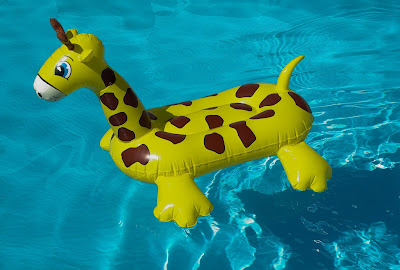Did you know:
- that giraffes can't swim?
- that elephants can't jump?
- that Scotland's national animal is the unicorn?
- that in any conversation we have two needs: personal and practical?
All of these facts surprised me, but only the last one was a game-changer. It gave me a wonderful lens for human interactions.
In any conversation, we have a practical need and a personal need.*
The practical need is the objective of the interaction.
The personal need is the human connection piece that accompanies that practical need.
Say a neighbor comes to your door to borrow some sugar (hey, it's still a thing. Ask my neighbors--I run out of baking supplies all the time).
They come to you with two needs:
- Your neighbor's practical need is easy to identify: they need sugar.
- Their personal need might be a desire to be treated well. Along with that practical objective of getting some sugar, they might also have the personal need of connection, kindness, or something along those lines.
Often though, when we are
too busy,
too tired,
too moody,
too hungry,
or just not mindful,
we cut right to fulfilling another's practical need and we skip the personal need completely.
Imagine throwing a bag of sugar in your neighbor's hands and slamming the door. Their practical need would be met. But what about their personal needs?
Great communication requires awareness of both needs.
The most common personal needs are to be heard, to be understood, and to be respected.
Here's another example: you approach your partner to tell them about your stressful day. Your practical need is to inform them about your experience, or maybe you just want to vent. Your personal need is for them to listen attentively with care and compassion. These needs are two sides of the kindful** communicator's coin.
In the workplace, too, particularly when dealing with customers, it's easy to jump straight to the practical need, i.e., the service you provide. Depending on your business, customers might come to you for practical needs such as assistance (help desk), teeth cleaning (dental office) or caffeine (coffee shop). But they have those unspoken personal needs too; they'd like to be heard, understood, and shown a modicum of respect.
Don't fulfill the practical need without addressing the baseline of personal needs, too.
You'll be amazed at the difference!
*A special thanks goes out to Development Dimensions International (DDI) for teaching me about the personal and practical needs when I became a certified trainer of their material.
**Kindful = mindful + kind
Awesome giraffe pool float image by jacqueline macou from Pixabay



